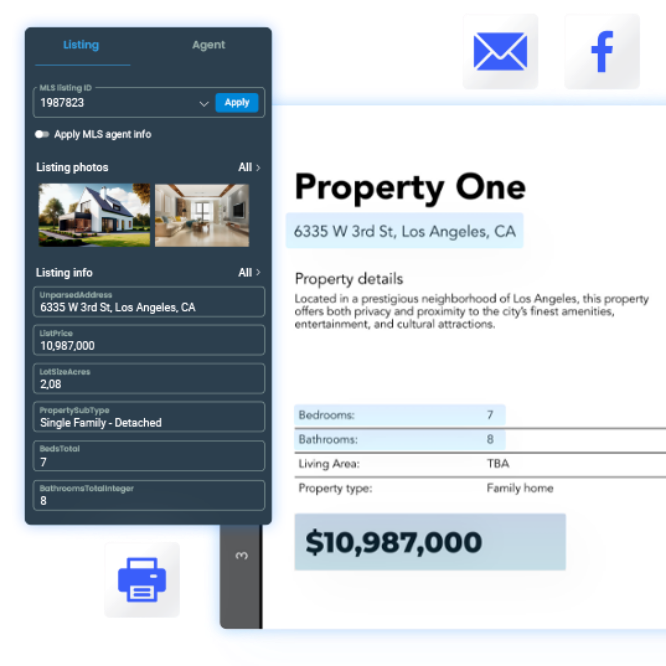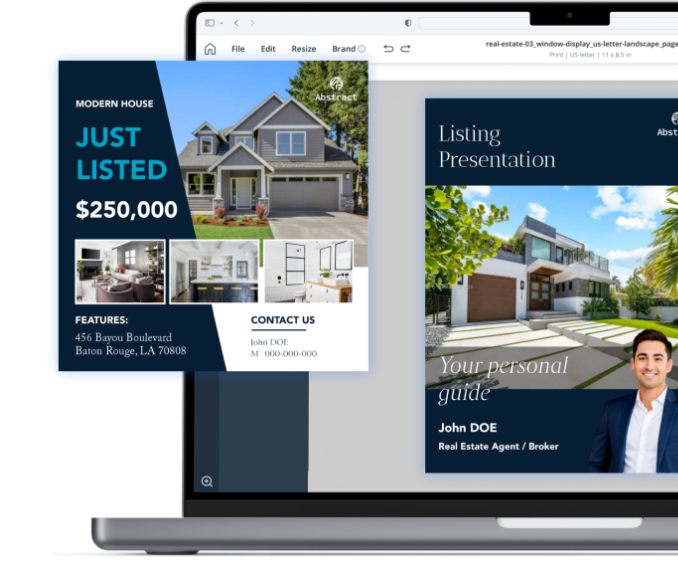TL;DR
Real estate SEO boosts organic traffic, cuts marketing costs, and builds long-term client trust. This guide covers practical steps for optimizing keywords, metadata, content, and local visibility to convert listings into leads.
From Listings to Leads: The Power of SEO for Real Estate
Benefits of Real Estate SEO
Enhanced Visibility
SEO improves your rankings in search engine results, increasing visibility to motivated homebuyers and sellers.Targeted Traffic
Strategic keyword usage attracts qualified leads actively searching for properties, not just general traffic.Cost-Effectiveness
Unlike paid ads, SEO provides long-term value with low ongoing costs once set up properly.Credibility and Trust
Higher rankings signal authority. Appearing in top search results builds user confidence and positions you as a trusted agent or agency.
Step 1: Conduct Keyword Research
Key takeaway: Understanding what potential clients are searching is foundational to successful SEO.
Tools to Use:
Google Keyword Planner
Google Autocomplete
Competitor analysis
Google Trends
Best Practices:
Use location-based keywords like “homes for sale in [neighborhood]”
Target long-tail keywords with lower competition and high intent
Track performance using a keyword spreadsheet and tools like Google Search Console
Step 2: Optimize Meta Titles and On‑Page Content
Meta Titles:
Keep titles between 50–60 characters
Include your target keyword and geographic area if relevant
On‑Page Optimization:
Place key terms in:
Headings (H1, H2)
First 100 words of text
Image alt tags
Keep sentences short and direct
Break content into digestible sections
Step 3: Leverage Local SEO
Step 1: Use geographic terms consistently across your site, including neighborhoods, ZIP codes, and nearby landmarks.
Step 2:
Claim and complete your Google Business Profile
Collect and respond to reviews
Embed maps and include address/contact information on your website
Step 4: Publish Keyword‑Rich, High‑Value Content
Content Ideas:
Local area guides (e.g., “Best neighborhoods in [City]”)
Listing spotlights and virtual home tours
Real estate FAQs and first-time buyer tips
Client stories and testimonials
Format Suggestions:
Use bullet lists, headings, and short paragraphs
Include multimedia like videos or maps
Optimize each post for one primary keyword
Step 5: Track and Measure SEO Performance
Metrics to Monitor:
Keyword rankings
Organic traffic volume
Conversion rates from organic leads
Tools:
Google Analytics
Google Search Console
Key takeaway: Analyze data regularly and adjust keywords, content, and strategies based on what works.
In Summary
SEO is a long-term strategy that brings consistent, high-quality leads to your real estate business. Start with solid keyword research, create local and informative content, optimize technical elements, and measure your success frequently.
Q&A
How can Xara help with real estate SEO?
Xara offers design tools to easily create branded, SEO-friendly content like blog posts, listings, and guides.
What’s the first SEO task to do with Xara?
Start by researching relevant keywords, then use Xara templates to build content that incorporates those terms in headings, titles, and visuals.
Can Xara help with local SEO content?
Yes. Xara allows you to create neighborhood-specific pages and downloadable resources that highlight your expertise in local markets.


Get Your Free Real Estate Marketing Materials For Your Business!
Join 10 000+ real estate agents powered by Xara Marketing Center.
- Sign up for a free account.
- Get a 14-day premium trial.
- No credit card required.







 No credit card or phone number required.
No credit card or phone number required.